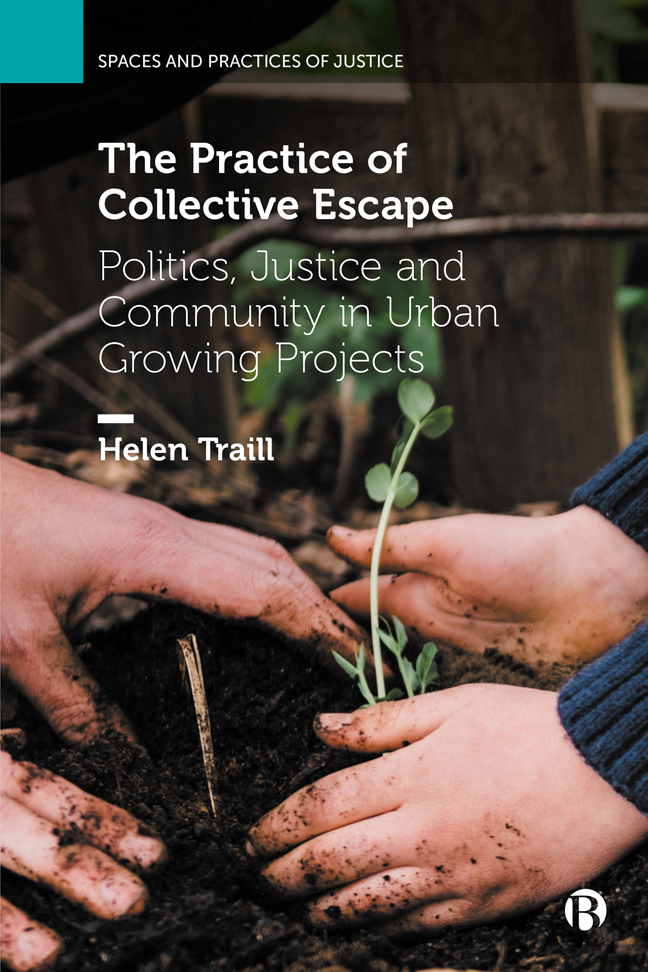Book contents
- Frontmatter
- Dedication
- Contents
- Series Preface
- Acknowledgements
- 1 Introduction
- 2 Urban Growing in Glasgow
- 3 The Rhythms of Urban Escape
- 4 Who Gets to Escape?
- 5 Ownership, Autonomy and the Commons
- 6 Escape into Responsibility
- 7 Field Dynamics and Strategic Neutrality
- 8 The Political Imagination of Common Justice
- 9 Escape, Crisis and Social Change
- 10 Conclusion
- Notes
- References
- Index
Series Preface
Published online by Cambridge University Press: 23 January 2024
- Frontmatter
- Dedication
- Contents
- Series Preface
- Acknowledgements
- 1 Introduction
- 2 Urban Growing in Glasgow
- 3 The Rhythms of Urban Escape
- 4 Who Gets to Escape?
- 5 Ownership, Autonomy and the Commons
- 6 Escape into Responsibility
- 7 Field Dynamics and Strategic Neutrality
- 8 The Political Imagination of Common Justice
- 9 Escape, Crisis and Social Change
- 10 Conclusion
- Notes
- References
- Index
Summary
Justice refers to a broad concern with fairness, equity, equality and respect. Just from the daily news, it is readily apparent how questions of justice or, in fact, the more obvious experiences of injustice shape our everyday lives. From global trade to our own personal consumption; living or dying through war and peace; access to education; relations in the workplace or home; how we experience life through a spectrum of identities; or the more-than-human entanglements that contextualize our environments, we need to conceptualize and analyze the intersections between spaces and practices of justice in order to formulate innovative and grounded interventions.
The Spaces and Practices of Justice book series aims to do so through cutting across scales to explore power, relations and society from the local through to international levels, recognizing that space is fundamental to understanding how (in)justice is relationally produced in, and through, different temporal and geographical contexts. It is also always practised, and a conceptual focus on these ‘doings and sayings’ (Shove, 2014) brings a sense of the everydayness of (in)justice but also allows for analysis of the broader contexts, logics and structures within which such experiences and relations are embedded (Jaeger-Erben and Offenberger, 2014; Herman, 2018).
- Type
- Chapter
- Information
- The Practice of Collective EscapePolitics, Justice and Community in Urban Growing Projects, pp. viiiPublisher: Bristol University PressPrint publication year: 2023

